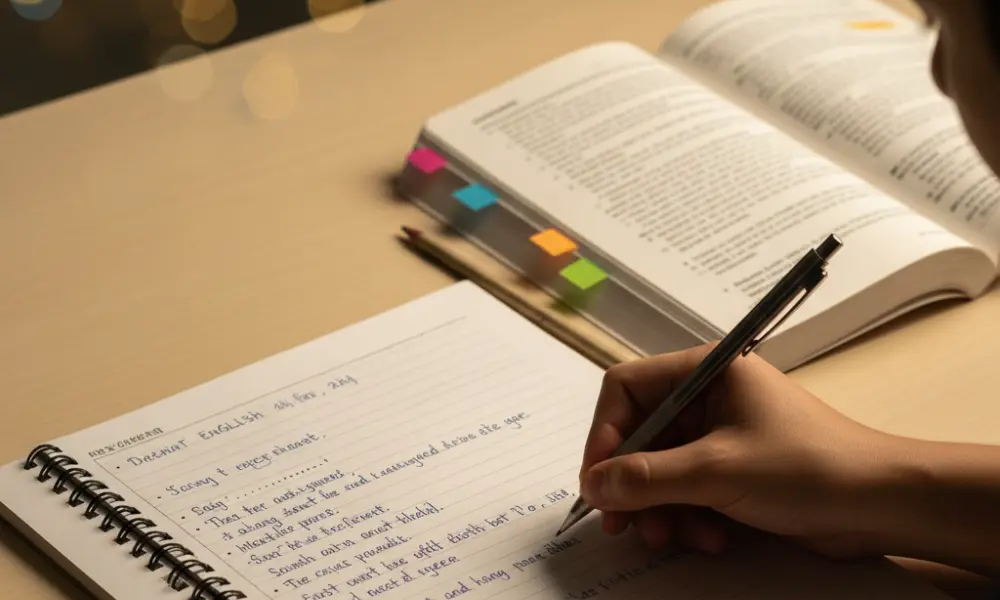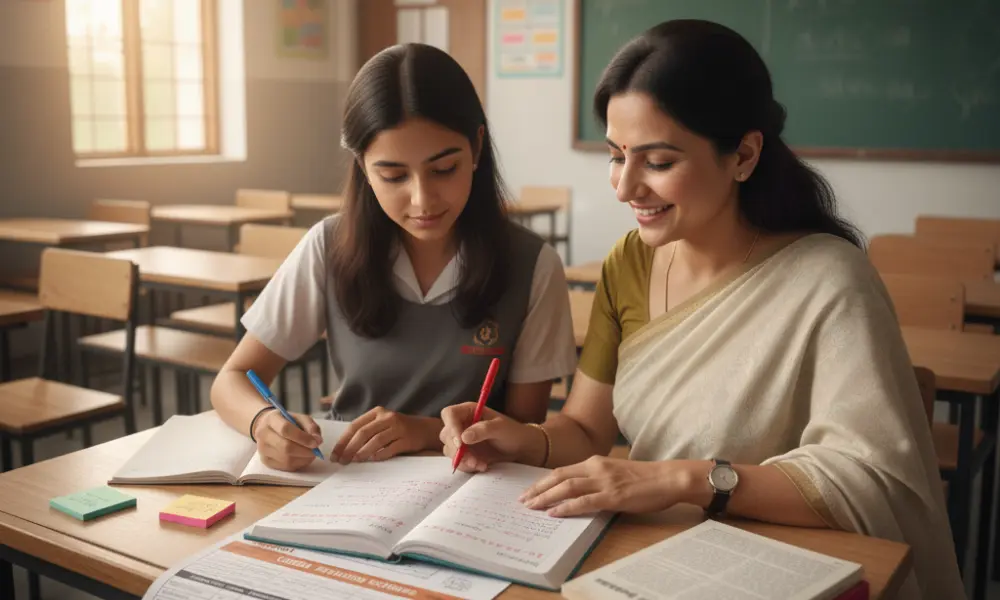Step-by-step strategies to write impactful CBSE English long answers and secure full marks
This blog guides CBSE students on how to master English Literature long answer questions. It covers examiner expectations, structuring answers, using textual references, avoiding mistakes, and proven strategies from toppers to maximize scores.

The CBSE English exam evaluates students on their reading, writing, and literature skills. In the literature section, long answer questions typically carry 6–8 marks each and demand thoughtful, well-structured responses. Unlike short answers, these require depth, critical thinking, and references from the prescribed texts. For many students, this is where marks are lost — not due to lack of knowledge, but due to weak presentation or missing key elements. Knowing the structure of the exam helps students prioritize their preparation and time allocation effectively.
Examiners are trained to assess answers on three main aspects: content accuracy, organization, and expression. They look for whether the answer addresses the question directly, includes relevant points from the text, and is expressed clearly in grammatically correct English. Originality and critical insight also make answers stand out. Students who include textual references and interpret themes or characters thoughtfully often gain full marks. Neat handwriting and proper paragraphing further enhance readability, which influences how examiners perceive the response.
A well-structured long answer typically follows a three-part format:
Introduction – Briefly state the context and directly address the question.
Body – Develop points logically, supporting them with evidence from the text. Each paragraph should cover a single idea.
Conclusion – Summarize the key argument or present a final reflective comment.
Planning before writing is crucial. Students should spend 1–2 minutes outlining main points. This prevents repetition and ensures a focused answer.
Quoting or paraphrasing from NCERT texts strengthens answers. For example, while discussing a poem, mentioning a line or phrase shows familiarity and supports interpretation. In prose, citing a key dialogue or describing an incident adds credibility. However, references should be brief and relevant; over-quoting without analysis does not impress examiners. Linking textual evidence to the argument demonstrates analytical skills, which is rewarded in marking schemes.
Even well-prepared students often lose marks due to avoidable errors. Common mistakes include:
Writing vague or generic answers without addressing the question directly
Skipping textual references or examples
Overwriting and exceeding word limits unnecessarily
Poor organization without clear paragraphs
Grammatical errors or informal language
Awareness of these pitfalls allows students to consciously avoid them in the exam hall.
Toppers often follow a simple but effective formula: they directly answer the question, support it with examples, and keep their writing concise yet insightful. For instance, if asked about the theme of hope in a prescribed poem, a topper would begin by defining how the poet conveys hope, cite a line, analyze its meaning, and end with a reflective comment. Their answers are usually 180–200 words, neatly written, and well-structured. Parents can encourage students to review past topper answer sheets available on CBSE’s website to understand presentation techniques.
English papers can feel lengthy, especially with reading comprehension and writing tasks included. Students often run short of time for literature questions. The solution is strategic allocation: keep the first 50–60 minutes for reading and writing tasks, and reserve at least 1 hour for literature. Within literature, attempt short answers quickly and leave sufficient time for long answers. Students should also practice timed mock tests at home to simulate real conditions. Writing under time constraints helps improve speed and clarity.
To score full marks in CBSE English long answer questions, students should:
Read the question carefully and stay focused on what is asked
Plan answers before writing
Use short, well-organized paragraphs
Include relevant textual references
Write neatly and within the word limit
Practice writing long answers from past papers under exam timing
In CBSE English, long answers are not about length but about clarity, relevance, and thoughtful expression.
With consistent practice, awareness of examiner expectations, and smart time management, students can transform long answer questions into high-scoring opportunities. Parents can support by reviewing practice answers, encouraging neat presentation, and ensuring children practice regularly. Platforms like Edzy also provide AI-powered answer analysis, helping students refine their responses and achieve exam-ready confidence.

How to Improve English Writing Skills for CBSE Exams
Mastering English writing for better CBSE exam scores

How to Build Concept Clarity in NCERT Science
Mastering Science through Concept Clarity for NCERT Students

Unlocking the Power of Grammar: Common English Mistakes CBSE Students Should Avoid
Master grammar to enhance your writing and avoid common pitfalls.

Everyday Chemistry: Real-Life Examples That Make Concepts Stick
Discover how everyday chemistry makes learning engaging and relatable.